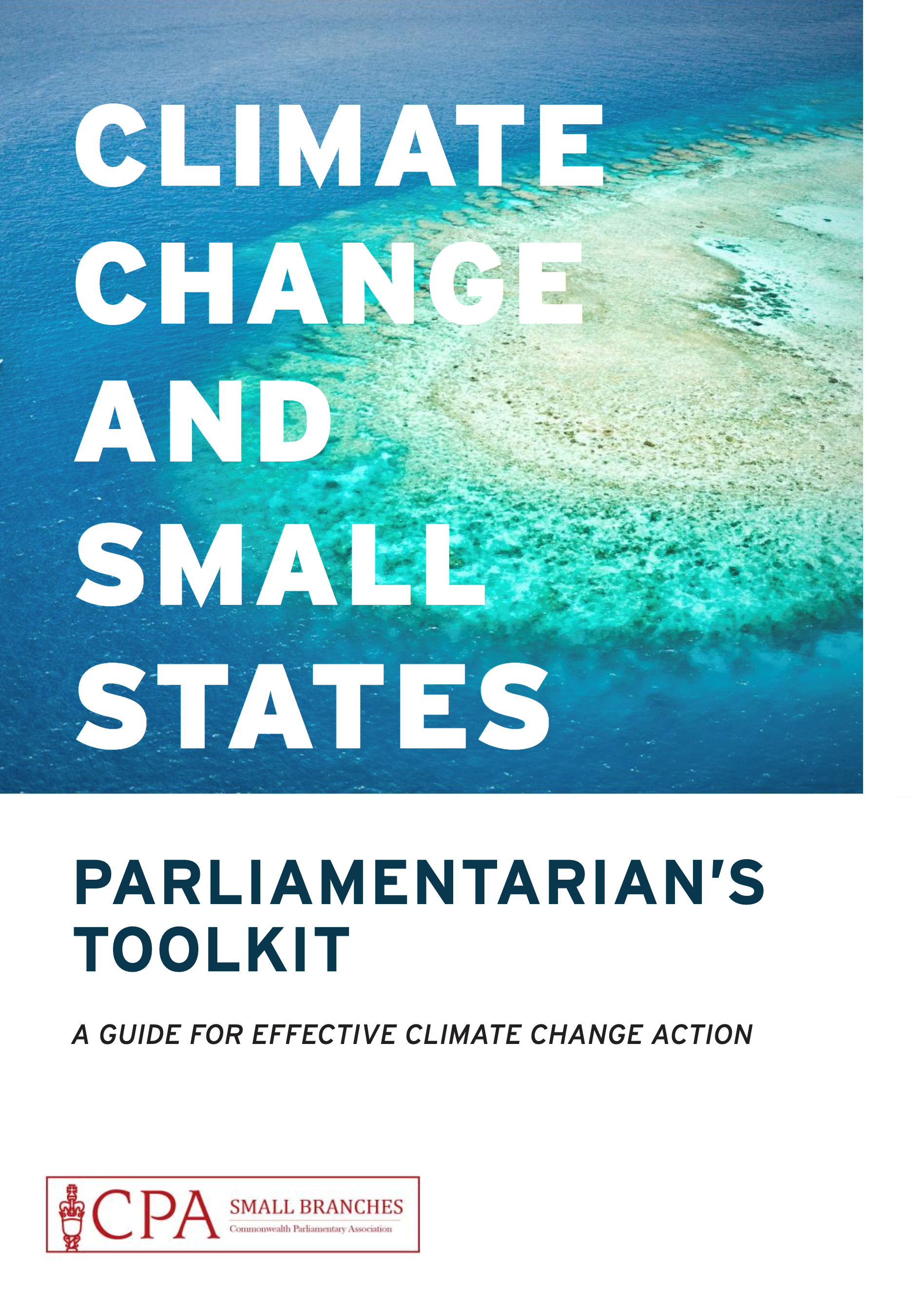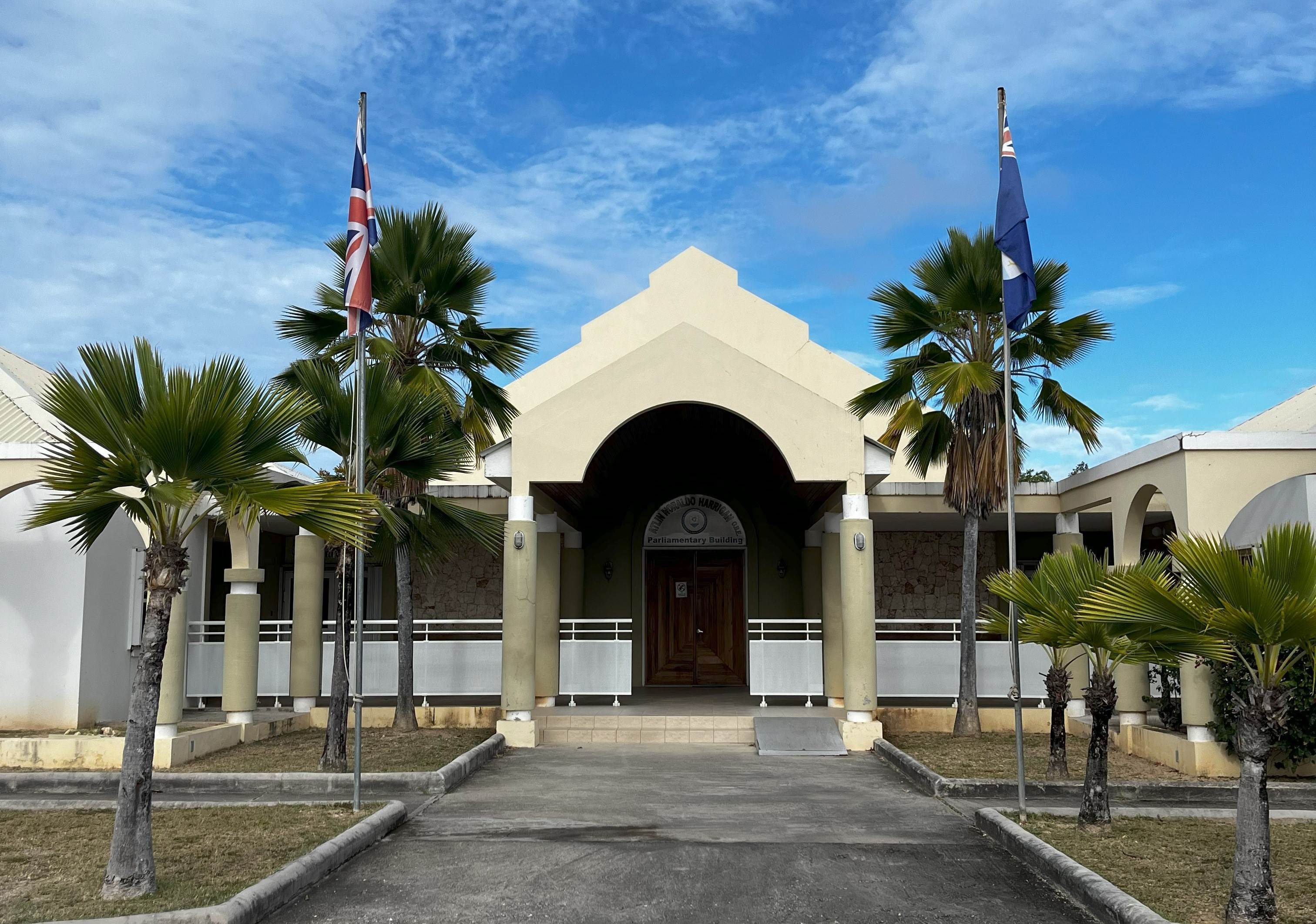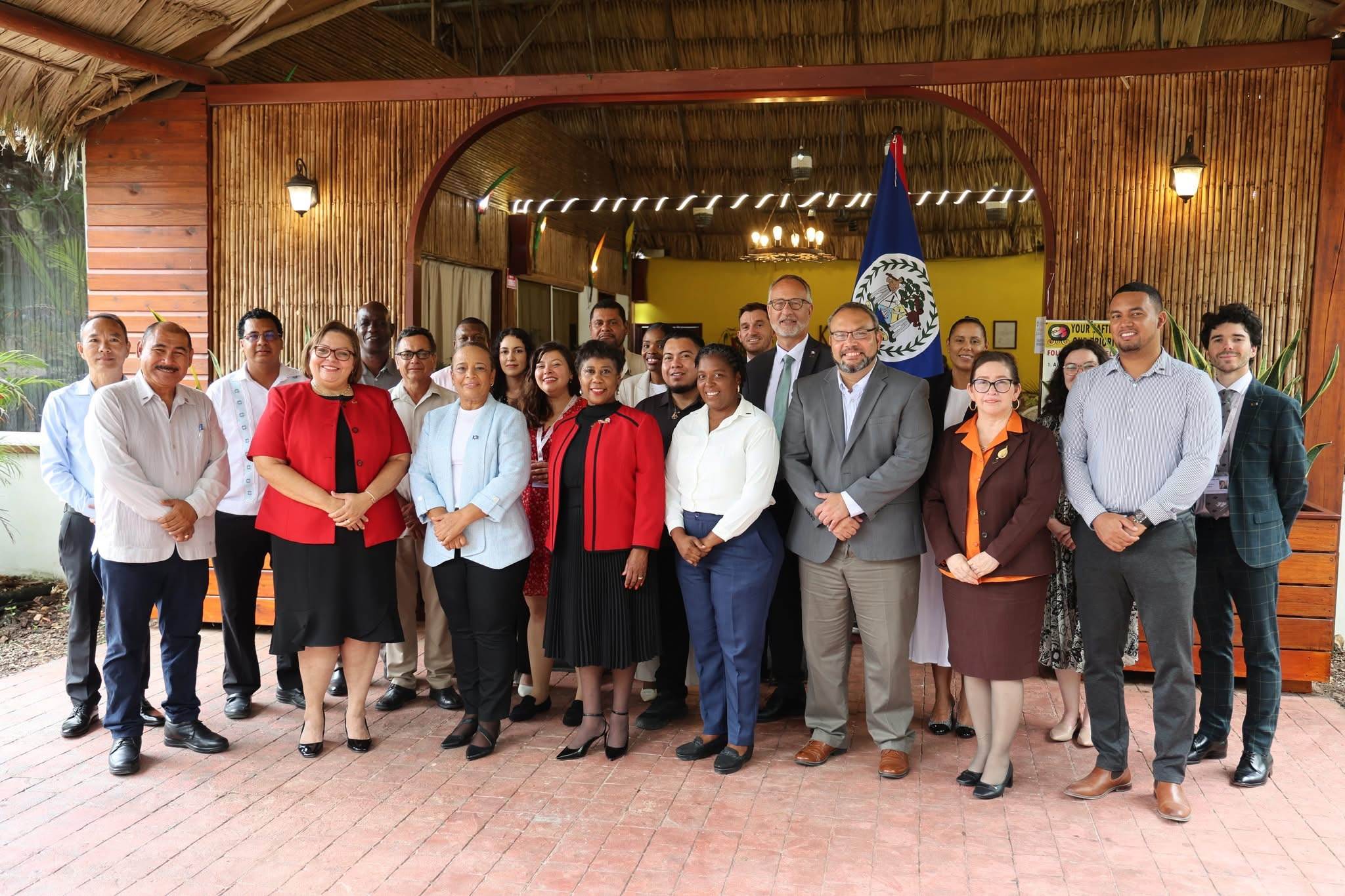
Q&A: Climate Change, Democracy and Parliaments
From 5 - 7 July 2022, the Commonwealth Parliamentary Association (CPA) Small Branches network and the United Nations Development Programme (UNDP) hosted an 'Empowering Climate Democracy' workshop at the United Nations complex in New York. 21 Members of Parliament from 16 small states and jurisdictions learned how to navigate the multilateral climate landscape and implement effective climate action.
In this blog, Members of Parliament from Barbados, Belize and Seychelles reflect on how climate change is affecting their country, the key takeaways from the workshop and what they can do as Members of Parliament to keep climate commitments at the forefront of government agendas.
Seychelles: Include Parliamentarians on climate conference delegations

What do you feel is the biggest climate issue in your jurisdiction?
The biggest climate issues in Seychelles include:
- economy-wide absolute Greenhouse Gas (GHG) emissions (CO2 emissions)
- disaster risk management
- coastal, marine and island ecosystems-based adaptation, such as the ‘Ridge to Reef’ project
- weather extremes and slow onset events
The impacts of climate change are causing a greater threat to economic, environmental, and social stability in Seychelles and other Small Island and Developing States and climate vulnerable regions.
How do you see your role as a Parliamentarian in ensuring climate commitments remain at the forefront of government agendas?
As Parliamentarians we are tasked with legislating, being representatives of the people, and providing oversight of the executive branch of government. As such, Parliaments and Parliamentarians play a significant role in international affairs and climate action.
As legislators, Parliamentarians are crucial in reinforcing international agreements and commitments with national legislation. National legislation and international agreements are mutually reinforcing . The aspect of legality ensures that international agreements on climate change can be legally enforced thus more effectively implemented.
As representatives, Parliamentarians can represent constituent concerns on climate change at an international level. For Small Island Developing States (SIDS), it is essential that concerns are adequately represented in multilateral climate forums and negotiations.
As Parliamentarians we should form part of our country’s delegation to climate forums and represent our institutions. This provides Parliaments the opportunity to build partnerships and engage in knowledge sharing activities with other legislators. Furthermore, Parliamentarians play critical roles in building national support for international commitments.
The oversight role over the executive branch of government means that Parliamentarians are suitably placed to assess government measures to tackle the climate crisis and their responses to climate issues. Parliamentarians are essential in ensuring that international agreements are being honored by the government and ensuring that budgetary allocations are appropriate in implementing measures addressing climate change.
What have been your main takeaways from the 'Empowering Climate Democracy' workshop?
Following the 'Empowering Climate Democracy' workshop, I feel that I have:
- a better understanding on the complex climate negotiations processes.
- developed soft skills necessary to navigate the multilateral climate change landscape, including in negotiation, communication, and networking.
- improved my understanding on how to explore the role of representative and inclusive institutions in addressing the mounting insecurity caused through climate change by engaging in multilateral climates effort.
- gained knowledge on the serious need for securing sustainable finance towards climate change, adaptation, and mitigation.
In all it was a very informative and very fruitful workshop for all participating Members of Parliament.
Belize: Coastline damage threatens livelihoods

What do you feel is the biggest climate issue in your jurisdiction?
Belize, bolstered by its geographic location and cultural context, describes itself as a Caribbean nation in the heart of Central America. What it lacks in size, Belize more than makes up for in the quality of its biodiversity. Belize’s economic backbone is its natural resources via tourism, its single largest revenue earner, and a growing agricultural portfolio. More than 60% of its population lives along its coast.
Our small size has therefore magnified the cumulative negative impacts of the climate crisis on a small, nature based and open economy. Our cayes and coastlines are confronting property loss due to rising sea levels and stronger and more frequent storms and hurricanes.
Major tourist destinations, built around our stewardship of the second longest barrier reef in the world, are battling sargassum influxes as well as coral reef loss due to warming seas, acidification and disease. Inland, farmers are fighting longer dry spells, devastating floods and shorter rainy seasons to maintain food production.
How do you see your role as a Parliamentarian in ensuring climate commitments remain at the forefront of government agendas?
I am using my role as a parliamentarian to highlight our individual role as well as collective responsibility in highlighting the plight of jurisdictions like Belize both nationally and internationally.
Externally, I feel I have a duty to call out that without the appropriate financial and technical support to mitigate these impacts, Belize’s vulnerability to the climate crisis will only continue to increase. Our countries have not contributed to the causes of the climate crisis and yet we are forced to bear the brunt of its impacts.
Internally, I also feel an onus to ensure that my colleagues are informed and engaged on climate related issues. No one is coming to save us. By keeping Belize’s future as the “big picture”, bi-partisan leadership will help to ensure we create the future we deserve.
What have been your main takeaways from the 'Empowering Climate Democracy' workshop?
My main takeaway from the workshop has been that we can break the vicious cycle of complacency and ignorance. Such exercises highlight the resources we can access to empower ourselves and our fellow citizens.
The robust discussions during the training also underscored the invaluable strength that is unity. By pooling the limited resources at our respective disposal, we can collectively enhance our strengths and amplify our voices in the corridors of power during climate negotiations.
The size of our countries and economies should not determine the respect afforded to our citizens’ rights to decent quality of life, protection of property and stability of livelihood.
Watch: Senators Janelle Chanona and Bevinton Cal, from the National Assembly of Belize, reflect on how the Empowering Climate Democracy workshop will help them strengthen Belize's position at international climate negotiations.
Barbados: Water scarcity worsened by unpredictable weather patterns

What do you feel is the biggest climate issue in your jurisdiction?
The biggest climate-related issue in Barbados is water scarcity. Barbados is ranked among the most water scarce countries in the world and does not possess adequate resources to fully address the issues caused by unpredictable weather patterns and a warming global condition.
Even though we are surrounded by a multitude of endless oceans, being situated in the Atlantic, our ability to sustain technologies such as desalination at a scalable level for national distribution is neither financially practical nor environmentally prudent
How do you see your role as a Parliamentarian in ensuring climate commitments remain at the forefront of government agendas?
As a Parliamentarian I am exposed to a wealth of knowledge and decision makers in both the private and public sectors; people who literally by their actions can determine directly and indirectly how sectors will evolve and at what pace.
I therefore see my role as one in which I can ensure that in those decisions being made, which mostly have to come before the Parliament for creation, amendment or resolution, thorough considerations be given to mainstreaming climate change and environmental aspects of any decisions.
Secondary to that role, but by no means less important, is my obligation to expose other Parliamentarians to the perspectives of climate change and its potential impact.
What have been your main takeaways from the 'Empowering Climate Democracy' workshop?
My takeaways from the workshop have been numerous, the most notable of which are that:
- Different countries may operate in different time zones and have different cultures, but share a common bond in their possession of the same vulnerabilities and same exposure to impacts being faced by climate change. Barbados is not alone in the fight for recognition of these threats.
- Negotiation is not simply a linear process of discussion between just two parties, as it considers the VISIBLE aspects of the parties' positions and the UNSEEN aspects of the parties' interests. The existence of these interests imply that negotiations is a multi-stakeholder process which requires patience and understanding at all stages.




